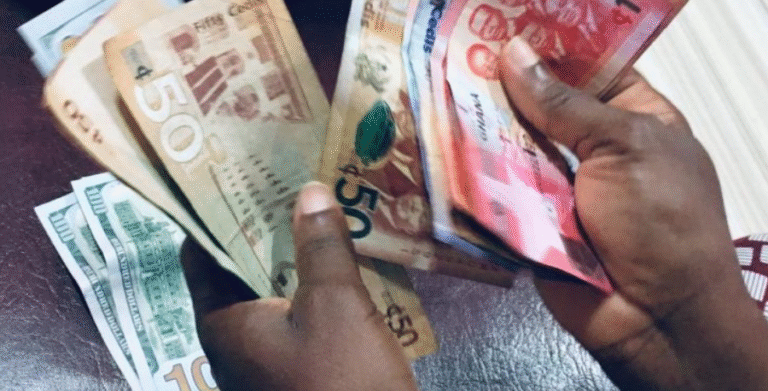The Director of Communications for the New Patriotic Party (NPP), Richard Ahiagbah, has accused the Mahama administration of creating a temporary illusion of stability around the cedi, arguing that its recent depreciation exposes what he described as “financial waste” resulting from the Central Bank’s unsustainable interventions.
Speaking on Channel One TV’s The Big Issue on Saturday, September 13, Ahiagbah argued that the government’s earlier actions to strengthen the local currency were not grounded in sound policy but rather in artificial support mechanisms.
“Now what we’re seeing is the cedi actually getting to a place where it is standing on its own, competing in the marketplace and its value as we are seeing is depleting. The artificial inducement they’ve given to the cedi, we’re losing it. And technically if you’re looking at it, I am inclined to say that, that was financial waste or financial loss, by dumping all of those things to create a certain appearance of performance. We’ve been asking them what exactly did you do to bring the cedi down the rate at which they brought it. It was not policy, if it was policy then it is just simple policy — let’s provide the dollars. But that’s not sustainable,” he said.
President John Dramani Mahama has defended the Bank of Ghana’s earlier interventions, insisting they were necessary to halt steep depreciation that had made economic planning difficult.
“I believe that it is about stopping rapid depreciation of the currency. When you have steep depreciation of about like we had in 2024, 25% depreciation in the currency in the first half of the year, it makes planning difficult. And so yes, Bank of Ghana has been intervening in the forex market but they’ve withdrawn,” Mahama explained at his media engagement on Wednesday, September 10, at Jubilee House.
Meanwhile, the Governor of the Bank of Ghana, Dr. Johnson Asiama, has also sought to reassure markets, stressing that the recent slide of the cedi should not be mistaken as a collapse of stability.
“The recent modest depreciation, some have wondered, reflects the market adjusting to reforms and seasonal trade patterns. It is not at all a reversal. We expect continued interbank activity and fiscal discipline to restore balance and reinforce long-term stability,” Dr. Asiama said at an SME forum in Accra on Thursday, September 11.
The cedi has faced renewed pressure in recent weeks after months of relative calm, triggering heated debate over whether the government’s approach to stabilising the currency was merely cosmetic or a step towards deeper reforms.
The cedi, which recently topped global currency rankings on the back of strong gold prices, has slipped 13 per cent this quarter. Bloomberg data indicates this is the steepest decline worldwide, wiping out part of the 50 per cent gain recorded between April and June.
Read also
No one is above the constitution – Sammi Awuku takes on judge over Abronye ruling
Source:Lovinghananews.com


